Tools to dream with
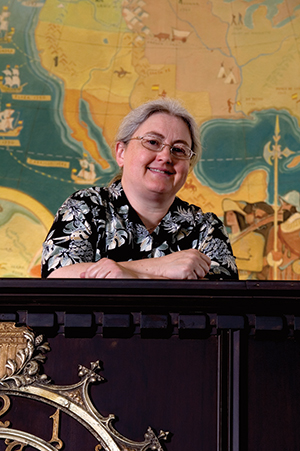 Cheryl Greengrove, Associate Professor, IAS, UW Tacoma
Cheryl Greengrove, Associate Professor, IAS, UW Tacoma
Cheryl Greengrove was 10 years old when she took on her first teaching assignment. Recognizing Greengrove’s advanced math skills, her fourth-grade teacher assigned her to tutor the “slow kid” in class.
The same abilities that shot her to the head of the class in grade school put the UW Tacoma environmental science professor at the top of her field today in physical oceanography.
Greengrove can’t remember a time when she didn’t think like a teacher.
“Ever since I was a kid, whenever I learned something, the next thought I had would be how to explain it to somebody else,” she says.
Jeff Hubert, an environmental science major, says that Greengrove’s style of teaching has motivated him to learn as much as he can. “I don’t think I have ever worked so hard or learned so much in a college class,” he says of Greengrove’s Water Resources and Pollution class. “She is so enthusiastic, so happy with her work, it’s contagious and it motivates you to learn.”
As a physical oceanographer, Greengrove delights in sharing her love of the ocean with others. “It is really easy to get people excited about oceanography because of where we live,” she says. “People are naturally interested in Puget Sound, and I help them delve into the parts that interest them most.”
To do this, Greengrove takes students on research vessels to get hands-on experience in the study of oceanography. Aboard boats that sail from Tacoma to the San Juan Islands, students sample and analyze water, plankton and sediments in four separate areas of Puget Sound, often teaming up with community agencies to conduct relevant scientific studies.
While she enjoys the research work and is a self-described “science nerd,” Greengrove says that teaching is her first love. “Really, this job combines all that I love—science, the outdoors, teaching and people. Life is just too short to do something you hate or don’t feel is important,” she says.
“My job is to provide students opportunities and give them tools to pursue their dreams.”
Demolishing the mountain
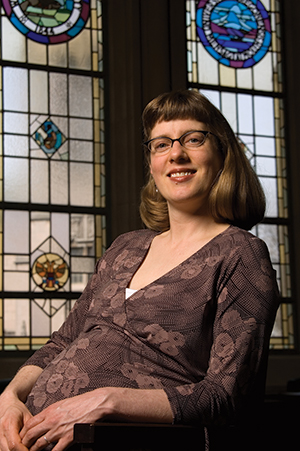 Sarah L. Keller, Associate Professor, Chemistry
Sarah L. Keller, Associate Professor, Chemistry
Physical chemistry was one of Sarah Keller’s least favorite courses in college. “It was a struggle. I didn’t understand the applications, though I understood the math. There was some beautiful math,” she recalls.
Times haven’t changed much. Many of her students have built “P-Chem” up into a forbidding mountain even before the first day of class. Keller strives to demolish the mountain—and succeeds. “Her course notes are remarkable in that they translate complicated physical chemistry concepts into plain English,” says Emily Terrell, an undergraduate who took Keller’s class.
Keller tunes herself in to student needs early on by giving students a self-diagnostic math test. The results help her understand where her pupils are starting from—and where they need to go.
In 2003 Keller won the Cottrell Teacher-Scholar Award, a distinction reserved for just 10 science faculty from the U.S. and Canada. While teaching, she also has a full research career and has published almost 30 journal articles.
She helps students see how the science they learn in the classroom applies in the real world. “In order to illustrate particular concepts and phenomena, Sarah has gone to great pains to incorporate meaningful examples from research laboratories and from the world outside the University of Washington into her classroom discussions,” writes one of Keller’s fellow chemistry professors, J. Michael Schurr. Keller also hopes real-world examples will help her students make career choices. She requires them to attend at least one research seminar and turn in a written report on it, something Schurr has adopted for his classes as well.
No matter the path her students take, Keller hopes some fundamental ideas stick with them. One is skepticism, which goes hand in hand with another skill: the ability to accurately make estimates, something that is useful for everything from a checkbook to a syringe dose. Says Keller, “That’s a skill that will help them whether or not they become a physical chemist.”
Global thinking begins at home
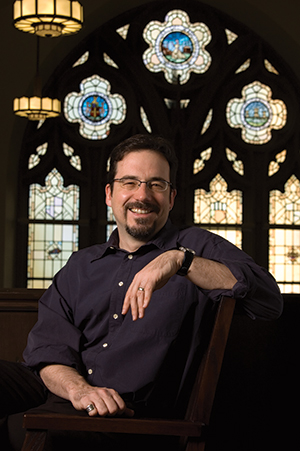 Ron Krabill, Assistant Professor, IAS, UW Bothell
Ron Krabill, Assistant Professor, IAS, UW Bothell
Ron Krabill builds bridges. As an assistant professor of interdisciplinary arts and sciences at UW Bothell, he builds them across disciplines and between students.
“The main thing I focus on is creating a class people feel comfortable and safe in,” says Krabill. “I spend a lot more time on introductions and making sure that everyone says something early on.”
Where other departments intensely focus on one discipline, Krabill’s expertise is a bit tougher to quantify, at least if you go by his class titles, which range from Social Action to Media and Social Movements to Colonizing History in Sub-Saharan Africa. Broadly, Krabill studies global social movements, but his passion lies in their interconnections.
“What I push students to recognize is that a lot of what seems like you have no control over is still a human-made process—so humans can change it,” says Krabill.
One of Krabill’s efforts to immerse his students resulted in an online course (taught in 2003 and 2004) called Advanced Media Studies, about media and society in comparative perspective. The twist? Half the students were from UW Bothell and the other half from the University of KwaZulu-Natal in South Africa. The class will be offered again in fall 2006.
Krabill’s particular interest in Africa is contagious for at least some of his students. “He mentored me to go beyond the academic understanding of South Africa to seeing and feeling the country firsthand. With his encouragement and work I achieved the experience of not only studying in another country, but creating an analysis and highly publishable paper,” writes Morgan Mentzer of Seattle Youth Garden Works.
Krabill recently received a grant from the UWB Teaching and Learning Center to incorporate community-based learning in his Institutions and Social Change class. “I’m committed to community-based learning,” Krabill says. “The best comes from recognizing that the University and community are not two different places. We need to have a global perspective.”
Class act in acting class
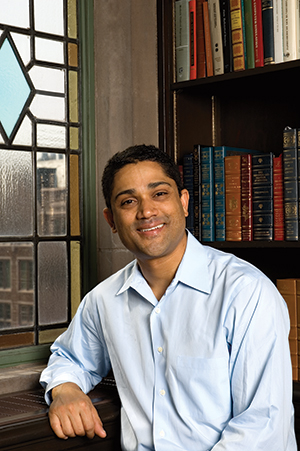 Shanga Parker, Associate Professor, Drama
Shanga Parker, Associate Professor, Drama
“Unlike the life of a ‘mercenary’ actor,” jokes Shanga Parker, “teaching is about giving.”
Parker was bitten by the giving bug in the form of Drama Professor Robyn Hunt, who was in “Romeo and Juliet” with Parker in Louisville, Ky., in 1994. Hunt convinced him to come to Seattle and teach drama part-time—the rest is history.
Parker continues to keep his acting and directing chops sharp while teaching. He has performed in a long list of plays, both on Seattle’s professional circuit and at the University. He also made an imprint on the small screen in ’80s and ’90s sitcoms such as “Married … With Children,” “Family Matters” and “The Fresh Prince of Bel-Air.”
One of his focuses since coming to the University has been creating more opportunities for students to practice playwriting. To this end, he created Once Upon a Weekend in 1998—a topic is announced on Thursday, plays are written over 24 hours, they’re cast and rehearsed, and are performed on Saturday.
“It was based on something I did as an undergrad,” says Parker. “I was introduced to it by [playwright] Paula Vogel [and] I brought it here because there were hundreds of students who wanted to act, direct and write. There is something wonderful about having actors rely upon their first impulse.”
Similarly, he began 14/48: The World’s Quickest Theatre Festival, which brings together five writers, five directors and 20 actors to make instant theater. Once they have a topic, the writers have 12 hours to write a play, and the actors and directors have eight hours to rehearse and perform it.
Most of all, Parker tries to imbue his students with confidence, no matter what area of drama they choose to participate in. “I try to give them the sense that what they themselves do and present is often enough,” he says. “They’re striving to put themselves in the position where who they are or what they’re trying to say is something worthy.”
Necessary steps
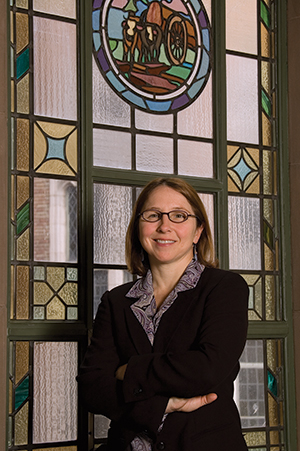 Jennifer Salk, Assistant Professor, Dance
Jennifer Salk, Assistant Professor, Dance
Jennifer Salk keeps a quote by writer Jim Harrison on her door: “I suspect that at its best, your education’s main motive is to fuel your curiosity and teach you how to find out things for yourself.”
By the looks of it, the teacher, dancer and choreographer has both areas covered. “Her way of teaching makes people feel at home but at the same time they feel challenged and are moved to improve, to work hard and to always reach for new goals,” writes Alice Gosti, a former student.
Salk spends hours preparing for her classes, which include all levels and dance styles except ballet. ”I’ve never taught any class the same way twice,” says Salk. “That would bore me.”
Because of her broad teaching scope, she has the opportunity to work with the same students throughout their college careers. “It becomes a family,” she says. “They get lots of individual time.”
She approaches the discipline from multiple angles, including research.
“Students do a ton of writing in this program,” she warns. She restructured the Teaching Methods course so students would be required to teach dance in the community. “It gives them a huge appreciation of what good teaching is,” she says. More recently, she restructured the 20th/21st Century Dance History course so students not only read about particular time periods and people, but perform pieces for each other in order to experience the dance style.
Salk draws her energy from regular interaction with her pupils. “It’s daily therapy, even when I get burned out. I’m very much a teacher; I start to doubt my identity when I’m away from it,” she laughs.
She wants to equip her students with a broad education. “They should be able to walk into any audition anywhere in the country and do well.” Salk also wants to instill in them a lifelong passion for dance and movement. “The old school was to beat up your body. Our hope is they will dance into their 60s and 70s.”
Everything old is new again
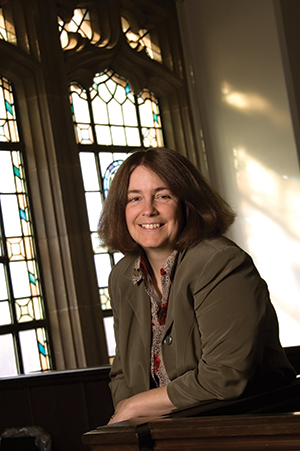 Robin Stacey, Professor, History
Robin Stacey, Professor, History
It’s not often that a professor who specializes in medieval and Celtic history finds pop-culture parallels, but Robin Stacey hit the jackpot when the “Lord of the Rings” trilogy was reborn on the big screen.
She crafted her first class around the J.R.R. Tolkien trilogy in the autumn of 2005 in response to suggestions from students who wanted to explore it further. The class uses Tolkien’s stories as a lens through which to look at England’s past, says Stacey. “That book drew quite a lot from Norse sagas. Tolkien is a fantastic author to use when exploring interesting issues regarding language and myth, the nature of heroism and the nature of evil.”
In fact, Stacey listens to her students quite a bit in creating her classes. Students look forward to seeing Stacey outside of class; they regularly visit her office hours and say she puts them at ease.
Stacey’s own college studies had her globetrotting: the University of Colorado and Colorado College, the Universite de Strasbourg (France), Oxford (England, where she spent two years learning Irish and Welsh) and Yale. She says a great teacher of modern French and Italian history started her down her current career path: “She was the sort that made you care more about the French Revolution than about your daily life.”
Stacey says she uses humor, primary sources and her “huge” medieval slide collection to get her pupils as excited as she is about medieval studies.
“What I really love is when someone had to take [my class] for a requirement, or the timing works for them,” she says, “and I can send them out of there really caring about this period or these people.”
Indeed, Jennifer Price, a former student, says, “She made me care about the exploits of ‘barbarians,’ Romans and other peoples inhabiting the early medieval world-no easy task at 9:30 in the morning.”
“The best thing we can hope to do is to inspire passion,” says Stacey. “When a student is swept by a passion for something, whatever they go on to do, that passion will stay with them forever.”
Chasing the gray away
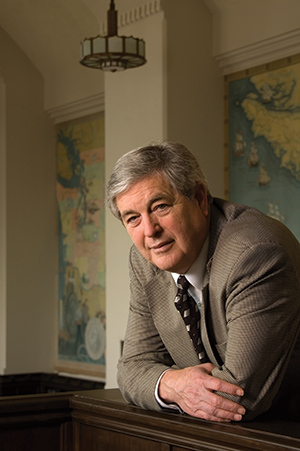 William Wells, Senior Lecturer, Business
William Wells, Senior Lecturer, Business
For some people, a midlife crisis means a fancy car or an exotic trip.
William “Bill” Wells, ’89, decided to get his second master’s degree.
The retired lieutenant colonel had eased into civilian life after 20 years in the military, where he specialized in intelligence.
He used expiring G.I. Bill funds to study accounting and in 1989 received his master’s from the University of Washington. A stint as a teaching assistant for an accounting class led him to substitute for the same professor the next year when that professor went on sabbatical. After 16 years, Wells jokes self-deprecatingly, “They haven’t asked me to leave yet.”
Wells recalls an overall bland college experience when he was an undergraduate in the early 1960s at Cal-Berkeley. “My college experience was gray,” he says. In contrast, he makes sure his UW classroom is vivid, using real-life examples of accounting in action in hopes that, at the very least, his students will be able to understand a Wall Street Journal article.
He is also renowned for using his office as a second classroom. ”As early as 1992, he was affectionately dubbed the ‘pied piper’ of accounting because of the long lines of students who would follow him to or from his office and/or classrooms,” writes James Jiambalvo, dean of the Business School.
Wells created and still teaches Accounting 199, a tutorial crash course originally limited to EOP students (which now includes other students), helping them get up to speed for the introductory-level accounting classes. “The key to that course is that it’s limited to 15 people,” he says. “You can’t hide in a classroom of 15 people.” He says his challenges are to toss out those students’ perceptions that accounting involves complex math and that accountants themselves are “short, bald and pudgy.”
Most of all, Wells says, accounting is everywhere, so it’s important that everyone understands it. ”Accounting is the language of business,” he says. “The students are my customers, and I try to make it interesting.”